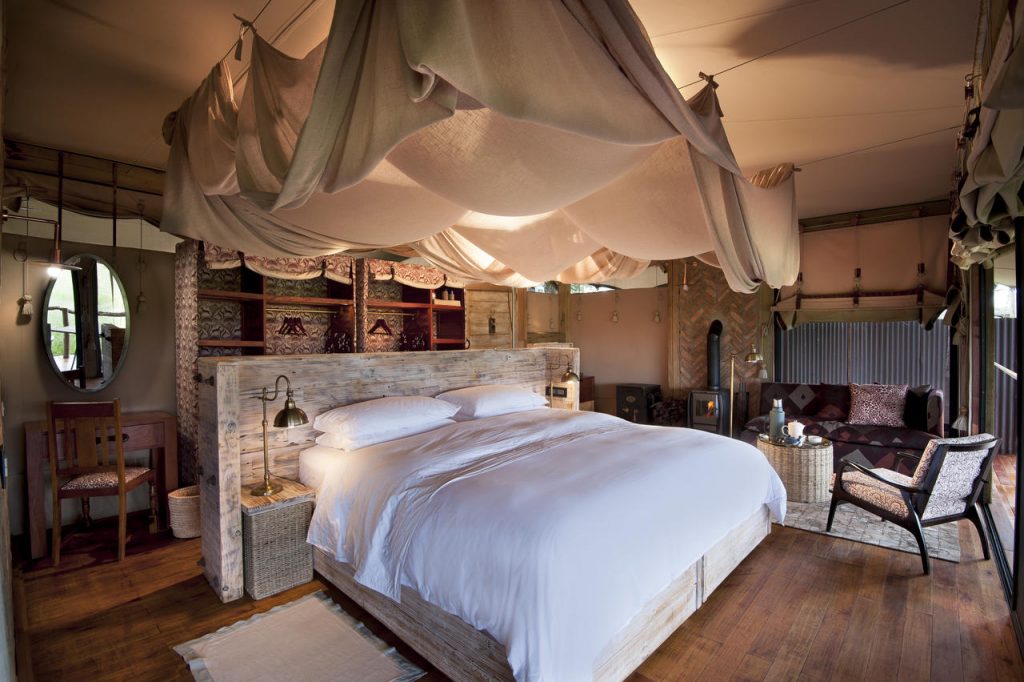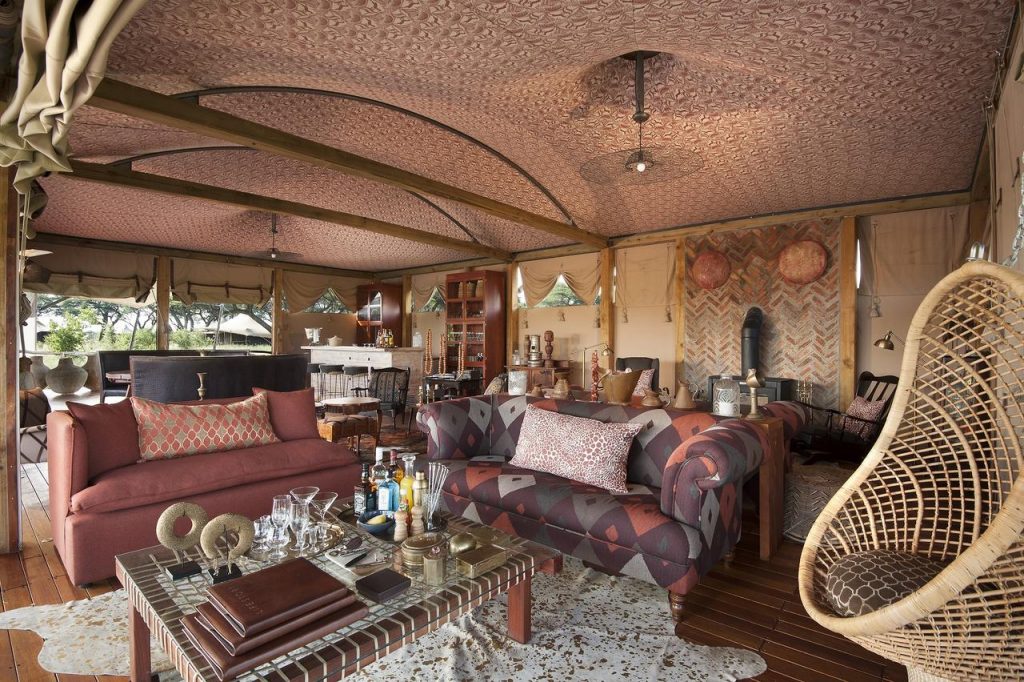Article by Mike Garden

As our small plane descended onto the Manga airstrip, we noticed a couple of elephant siphoning cool clear water from a pan which was being filled by a solar panel operated borehole. The journey from the runway to Somalisa tented camp in Hwange National Park, takes about 25 minutes through teak woodland along well defined tracks in the kalahari sands.
Barely five minutes from the landing strip at this same waterhole we had just viewed from the air we were treated to a birding spectacle. First a pair of Secretary birds walked proudly through the vlei, followed by an African Harrier Hawk (Gymnogene) searching the sturdy trees nearby for the eggs of weaker, unsuspecting birds whilst a majestic Martial Eagle sat quietly in the shallow water with large yellow eyes peering at this unwanted intruder.
Even though Hwange is home to some 45,000 elephants, it is a such a vast piece of real estate that there is, effectively, only three elephants to every square kilometre. During the dry winter months, they all tend to congregate around water holes giving the debatable impression that there are too many in the park.
In October, the peak of the dry season, water levels are low, the grass dry and unpalatable and during this time, fresh green leaves on the trees give off a bitter taste. Elephant are easily irritated under these conditions and given to loud trumpeting at all times of the day.
They do, however, come right up to the suitably barricaded verandah in the front of the dining area of the camp and slurp up copious quantities of water from the plunge pool. Guests sip on their gin and tonics whilst watching these enormous animals quenching their thirst, seemingly without concern.
Operated by African Bush Camps (ABC) and situated in the south east corner of the park, Somalisa is split into three separate camps.
The main one has seven independent lodges whilst Somalisa Acacia is designed around families and Somalisa Destination is set ten minutes away with smaller A-frame tents with less frills.
On arrival, visitors are greeted by very friendly staff offering a wonderfully scented wet flannel to freshen up and wipe away the dust before being shown to a beautiful custom designed, spacious tent with solid wooden flooring raised off the sand. The king size bed is large and very comfortable with great pillows and bathrooms are designed in olde style brass with twin basins and porcelain handles alongside a deep, free standing bath. An outside shower completes the experience allowing a welcome cool down on a hot summer’s day.
After freshening up in our rooms we were presented with a delicious meal of sirloin steak, cooked medium rare and served with a very tasty monkey gland sauce.

The beauty of staying in a remote camp like Somalisa is the fact that you are completely cut off from the outside world, allowing the full benefit of this special time away from your daily routine. No cell phones, email or internet. No noisy traffic or aeroplanes apart from the vehicle taking you on a game drive and the occasional plane bringing in guests to the lodge. Pure silence, except for the occasional clink of glasses to wish your travelling companions “Bon Appetit”.
One of ABC’s main focuses is conservation and inclusion of the nearby community. Everything is specifically designed to leave no noticeable footprint. They believe that education of the local people is an integral part of their sustainable development.
Game drives are conducted using ten seater land-cruisers, taking guests to the Ngweshla plains to view the abundance of wildlife that Hwange is so well known for. Cooler boxes are, of course mandatory, with a stop for afternoon sundowners and time to meet and chat to your fellow guests.

Just after 5 am the following day, we all met at the ‘boma’ for a healthy continental breakfast before setting off in the land-cruiser at sunrise, covered with a warm poncho to keep out the early morning chill. By 6.30 am we had come across a small pride of 7 lion and lioness lying prone with noticeably full bellies, giving us all such wonderful photographic opportunities.
It was a successful drive with sightings of a wide variety of wildlife including roan, kudu, sable, wildebeest and black-backed jackal.
One of the unwritten must-haves of any safari experience is to be accompanied by a top class guide. Our driver, “Honest”, lived up to that in many ways. Cruising along at a steady 25km/hr he came to a stop alongside a seemingly inconspicuous tree. Quietly, he took out his binoculars and showed us a tiny African Barred Owlet. On another occasion he asked us to alight from the vehicle and walk over to a false mopane tree (Guibourtia coleosperma)
where he showed us the exposed skin and head of a large African rock python tucked up in a crack nearing the end of his annual hibernation.
Dinner in the evening is always served just before 8pm giving you plenty of time to relax, shower and change into more appropriate attire for the candlelit meal. Guests are seated at the dinner table under the stars, eating and chatting about their experiences and sightings of the day. Once our taste and thirst was suitably satiated we all moved over to sit around the warm campfire.
Overall, the trip to Somalisa was a great experience; far from the madding crowd and away from the constant technology that we seem to be subjected to in our daily lives.
Why don’t you consider taking your partner and family to this stunning camp for a few days and revel in some very special ‘Time Out?’

